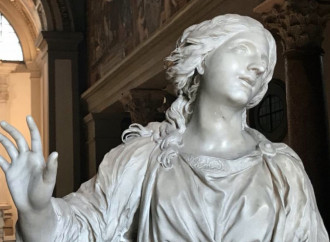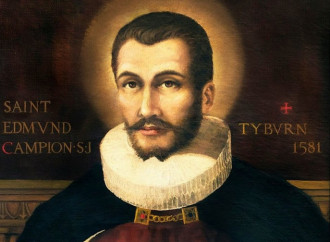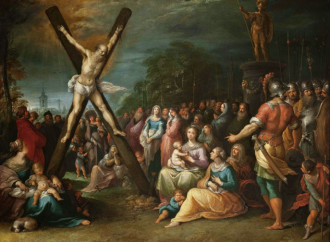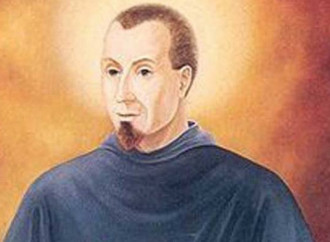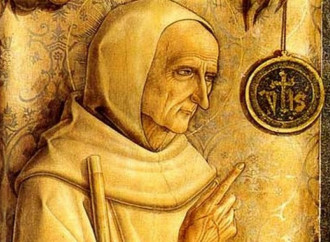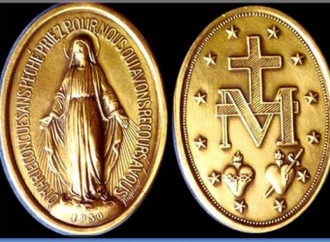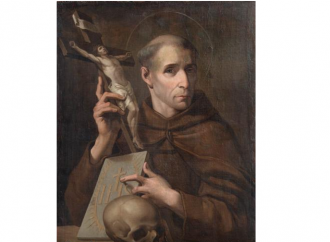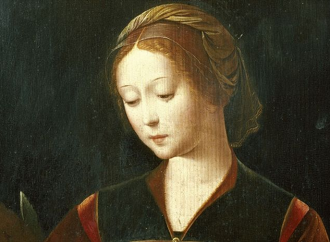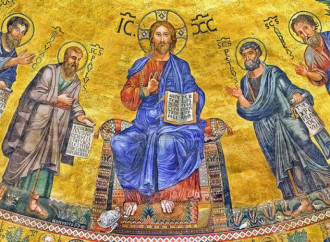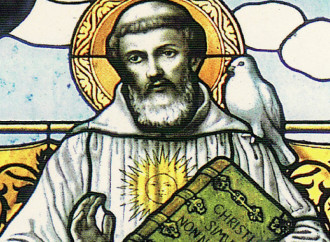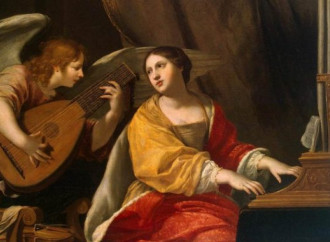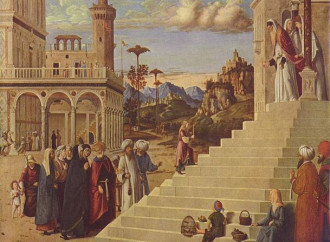Saint Bibiana
Her martyrdom was perpetrated during the historical interlude of the empire of Flavius Claudius Julianus (361-363), known as the Apostate.
Saints Edmund Campion and Companions
Saint Edmund Campion (1540-1581), known as the Pope’s Champion, was born in London during the vicious years of the Anglican Schism.
Saint Andrew
He was the first apostle to lead Peter to the Lord. Andrew preached the Gospel in Asia Minor and Scythia. He suffered martyrdom in Greece, in Patras, where he was crucified on an X-shaped cross.
Saint Francis Anthony Fasani
He had joined the Franciscans as an adolescent taking the religious name of the two saints of the Order to whom he was most devoted, Francis of Assisi and Anthony of Padua.
Saint James of the Marches
He spent his life in the service of the Church, becoming one of the leading figures in the 15th century together with his friends Bernardine of Siena and John of Capistrano.
Blessed Virgin of the Miraculous Medal
On 27 November 1830, the Blessed Virgin appeared to Catherine Labouré. The saint saw Our Lady wearing a white dress like the dawn, a blue mantle and a long white veil, standing on a half globe enveloped in the coils of a snake.
Saint Leonard of Port Maurice
In 1731, he obtained the Brief Exponi nobis from Clement XII, which authorised the installation of the Stations of the Cross in all the churches. St Leonard also introduced the meditations for each of the 14 Stations.
Saint Catherine of Alexandria
She lived in one of the most important cultural and religious centres of antiquity and was “filled with sharp wit, wisdom and strength of spirit” (Roman Martyrology).
Christ the King
The solemnity of Christ, King of the Universe, was introduced by Pius XI with the encyclical Quas Primas of 11 December 1925 to recall the kingship of God the Son over history and to remedy an evil that was already afflicting society at that time: secularism.
Saint Colomban
His life recalls in an exemplary way the Christian roots of the Old Continent. He and his monks proclaimed the Gospel and had a profound impact on European culture.
Saint Cecilia
The patron saint of music was martyred during the pontificate of St Urban I. Her story reveals her unconditional love for God, to whom she consecrated herself.
Presentation of the Blessed Virgin Mary
The Catholic Church commemorates the presentation of Mary as a child in the temple in Jerusalem, celebrated on the same day by the Orthodox under the title “Entrance of the Mother of God into the Temple”.
